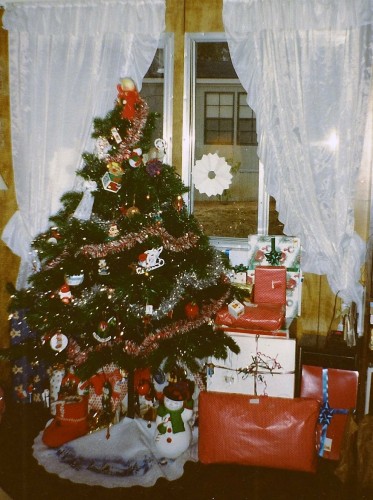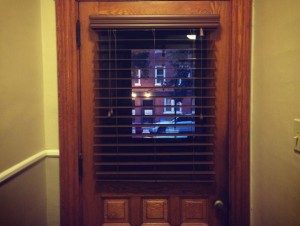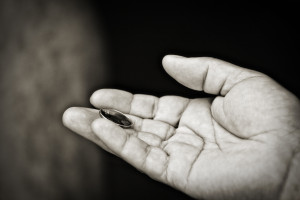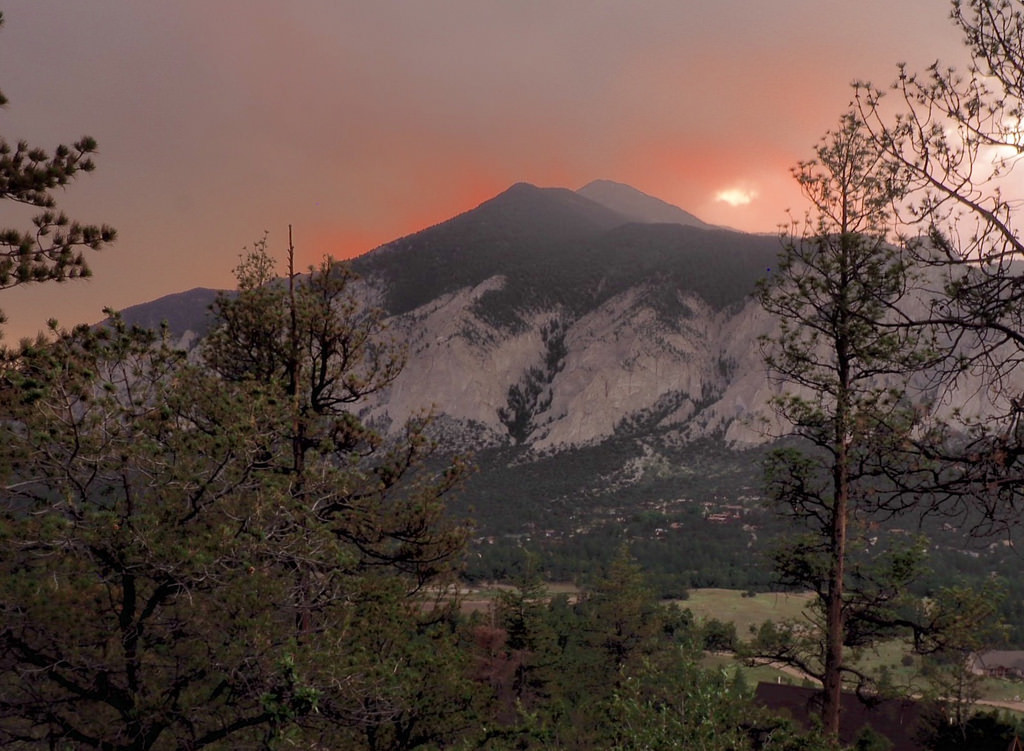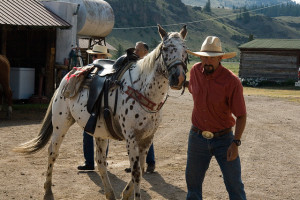I was getting ready to leave home when I got the text from my editor:
Dish will either be bacon-wrapped filet of ribeye or Parmesan encrusted halibut over Maine lobster orzo. SCORE…! I smiled, my mind already wandering to the seafood, and hoping they chose the halibut—perhaps my favorite fish. I threw my purse over my shoulder and left the house, preparing myself for the 50 minute drive to a local resort town.
When I arrived, too late for lunch and too early for dinner, the hostess, who seemed to know I was coming, seated me by a window with a spectacular view of the lake. In moments, the bartender brought me a glass of water, asking if he could get me anything else. For a moment, I considered ordering a dirty martini, but I abstained. After all, I was working.
The chef arrived, in full kitchen whites, and shook my hand before taking a seat across from me. He told me they had decided on steak. For a moment, I was disappointed. I’ve never been an avid consumer of large chunks of meat. As a child, I would sit for hours rather than finish a pork chop with even a hint of fat. I didn’t like it when the muscles got stuck between my teeth. But I couldn’t tell this chef that I’d rather not eat a steak. I would eat what they put in front of me. And then, I would write about it.
 When my dish arrived, carried wordlessly by a waiter, it was sprinkled with tiny, edible flowers and accompanied by morel mushrooms. “Have you ever had filet of ribeye?” the chef asked. I shook my head, cutting off my first bite. “You remove only the centermost, tender part of the steak, giving a similar impression to a filet mignon.” This special cut was wrapped in bacon they made in-house. “Underneath the steak is a potato dish I created for a chef event.” He leaned forward. “What do you think?”
When my dish arrived, carried wordlessly by a waiter, it was sprinkled with tiny, edible flowers and accompanied by morel mushrooms. “Have you ever had filet of ribeye?” the chef asked. I shook my head, cutting off my first bite. “You remove only the centermost, tender part of the steak, giving a similar impression to a filet mignon.” This special cut was wrapped in bacon they made in-house. “Underneath the steak is a potato dish I created for a chef event.” He leaned forward. “What do you think?”
I had just slid my first bite into my mouth and was trying to correlate this amazing taste and texture with any other steak I’d ever had. “It’s wonderful,” I said. He smiled and then left me alone to enjoy my oddly timed meal before a tour of the extensive wine cellar.
I ate slowly, realizing that perhaps I liked steak after all, or at least this one. I made a few notes on my yellow pad (the ribeye cuts like room temperature butter and gives in to my teeth without resistance, the potato is crisp on the outside, not too much dairy on the inside, but still creamy) and picked up the menu to collect the details. As I wrote down the price, I paused, just for a moment, mid-bite. This plate of delicious meat, potatoes, and mushrooms would cost $50 for the average diner. Without the martini.
I finished eating and the chef, the young, waistcoat-clad general manager and I descended to the cool wine cellar, luxuriously filled with millions of dollars worth of bottles. The two men played off each other easily, quoting statistics and showing off double magnums of champagne so expensive I couldn’t afford even a sip.
After I took my leave of the chef and the general manager, with handshakes all around, I took advantage of my extra hour of free resort parking with a walk down by the lake. As I walked, I thought about the people who would be reading the article that I was even now writing in my head. Spokane isn’t lavish. Most in the community are not well-to-do. For many of the people I know, eating out is a luxury, especially for something other than a burger. Restaurant dining is saved for birthdays, anniversaries and the occasional date night. Most of the people reading my article wouldn’t even consider ordering a $50 steak. I would never consider ordering a $50 steak if I was footing the bill.
Although my budget isn’t expansive, I love to try new restaurants as soon as they open, to treat friends to breakfast and lunch, dinner and drinks. Writing about food, from the expensive resort fare, to local diners, is the way I pay these bills (or submit them for reimbursement). My passion has become the means of my provision.
And because I know this is special, something that might be saved for, or noted in the budget, I feel a responsibility to those readers. When I sit down to write a review, I do my best to tell the truth about my experience. All of my visits do not include a chat with the chef. Most of the time, they don’t know I’m coming. I’m short and blonde and young, and I don’t look like a food writer. They treat me just like anyone else. It is, paradoxically, my very normalness that makes me a reliable critic. If I am dazzled by the service, or a particular dish, it’s likely that a reader will be. As I wrote the piece about the steak (which was photographed and put on the magazine cover), I did my best to weigh every word for accuracy. You never know who might be clipping the article and saving up for a special evening. I would hate for them to be disappointed.



